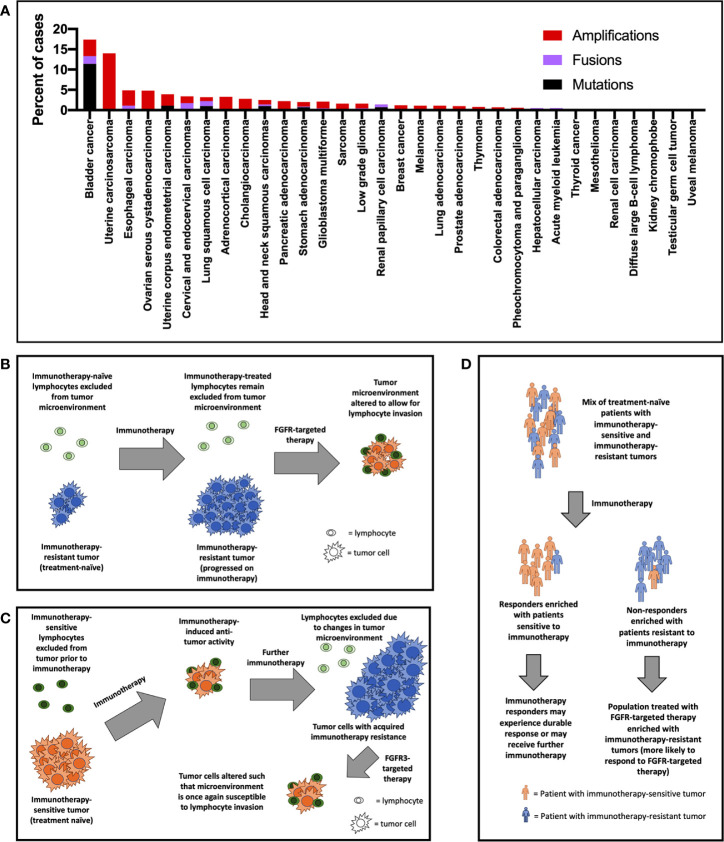Figure 1.
(A) FGFR3 gene alterations by cancer type based on available data from The Cancer Genome Atlas (TCGA) (only recurrent mutations and fusions—those comprising in >1% of mutations/fusions—were included). Potential mechanisms of improved response rate to FGFR3-targeted therapy in the post-immunotherapy setting include (B) primary immunotherapy resistance, (C) secondary immunotherapy resistance, and (D) enrichment of patients with immunotherapy-resistant tumors in trials of FGFR3-targeted therapy.

